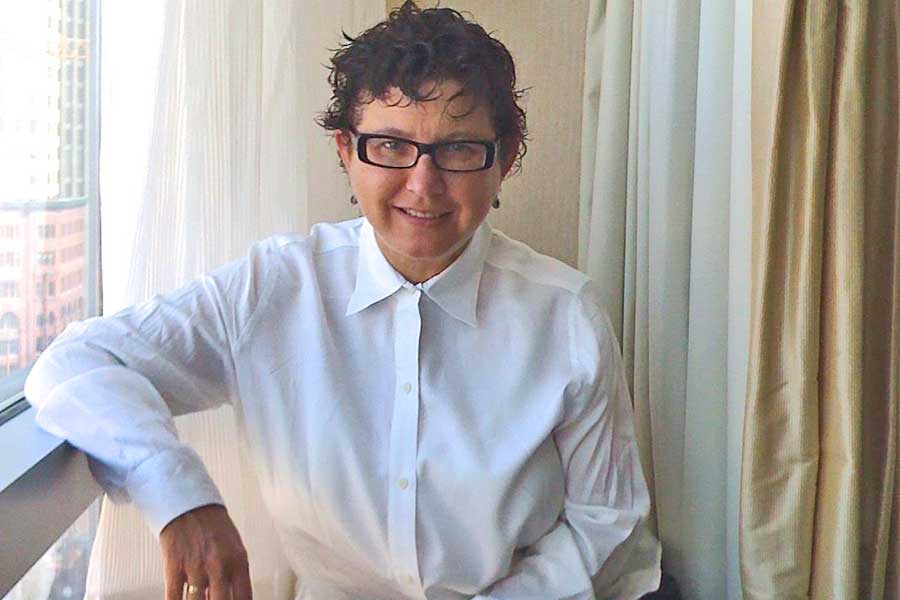Celebrated film critic, professor and author B. Ruby Rich — she coined the term “new queer cinema” — visits the Philadelphia area for three events this month.
At 7 p.m. Oct. 24 at Swarthmore College, Rich will present a talk entitled, “The Public and the Private: Queer Cinema in the Age of Streaming.” In a recent phone interview, Rich explained her interest in how society is consuming cinema via Netflix and Amazon Prime and on personal devices.
“This [trend] has created a move to individual filmmaking, characters, narratives and plots,” she said. “We are watching in isolation.”
In her talk, Rich will trace a “move towards individualism, which was not part of the original impetus of queer cinema” and that was illustrated by films like “Go Fish” and “Swoon” — key titles in the New Queer Cinema movement that were made by and for the LGBT community.
She indicated that the films that were part of the New Queer Cinema movement stemmed from a group of filmmakers who were responding to the inequality of LGBT people in society. Back in the 1980s and early ’90s, the reaction to the AIDS epidemic and its lack of prevention, coupled with the oppressive government (Reagan, Bush, Thatcher) and the availability of the camcorder and “cheap rent” — which allowed filmmakers the ability to afford to live and work and experiment — created powerful films about LGBT life, like the aforementioned “Go Fish,” or Gregg Araki’s “The Living End” and Todd Haynes’ “Poison.”
In contrast, today’s digital era has led, Rich observed, “to an increase in quantity, but not in a new movement,” adding: “We’re in a fraught political moment where we could really use some kickass queer filmmaking.”
She continued to describe how medical advances (like PrEP) and same-sex marriage are allowing queer folks to feel “more protected in their lives,” adding ruefully, “A lot has shifted, radically, but there is still inequality of our society. The energy that has gone into addressing trans issues is where you find momentum and outcries against discrimination.”
One cinematic voice she acknowledged as groundbreaking is trans filmmaker Silas Howard, who co-directed “By Hook or By Crook” with Harry Dodge. Rich is expecting to screen clips from Howard’s short films, “The Golden Age of Hustlers” and “Sticks & Stones,” which features transgender performer Bambi Lake, at her Swarthmore presentation.
At 7 p.m. Oct. 25 at International House, Rich will screen two documentaries: the feature “Ovarian Psycos” and the short “Fisherman without a Sea.”
“Ovarian Psycos” is the name of a feminist, women-of-color and women-identified collective. This warm documentary about rebellious spirits profiles several members of this bicycle brigade in East L.A. who have been victims of abuse and/or empowered by their commitment to their community. Directors Joanna Sokolowski and Kate Trumbull-LaValle show the backlash and difficulties the Ovarian Psycos experience, as well as their family-like bond. What is best about this film is how it illustrates the power these women feel when they have control in their lives, families and society, rather than being victims of sexual and/or physical violence and discrimination.
“Fishermen without a Sea,” by Lucas Bonetti, was shot a year-and-a-half ago in Brazil, and concerns the contamination of Guanabara Bay leading up to the Olympics in Rio this past summer.
The filmmakers are all graduates of the interdisciplinary social-documentation program Rich teaches at the University of California, Santa Cruz, where she is a professor of film and digital media. Rich wants people to see these fascinating documentaries, which she feels are two of the best films to have come out of the program.
“For documentary, these films [speak] to a point I make when I teach, which is that documentaries should be legible to their subjects. There’s a trend to do more stylized, less-journalistic style of documentary that treats factual material as a canvas to write an essay. This moves away from ‘indexicality.’ For me, and as someone who teaches documentary, people who make docs have to have a connection with their subjects, and not see them as materials they take and play with. One thing I like to think about is: What makes works legible to the people you made it about and with? The subjects of a film should recognize themselves in it.”
The last program Rich is doing in the area is teaching “Master Class: Criticism that Matters” at the Scribe Video Center Oct. 26.
As a former film critic for the “Chicago Reader” and the current editor of the journal “Film Quarterly,” Rich is hosting a workshop that she said “talks about the nature and responsibility of film criticism,” and “looks to find new voices and ‘reform’ film criticism to get it out of the fanboy and the ‘auteurist’ cinephile straightjacket.”
For more information about B. Ruby Rich’s Swarthmore event, visit http://ow.ly/MKwN3059nzD; her Interntaional House event, visit http://ow.ly/9B6P3059nH5; and her Scribe Video Center master class, visit http://ow.ly/gbiD3059nLR.

